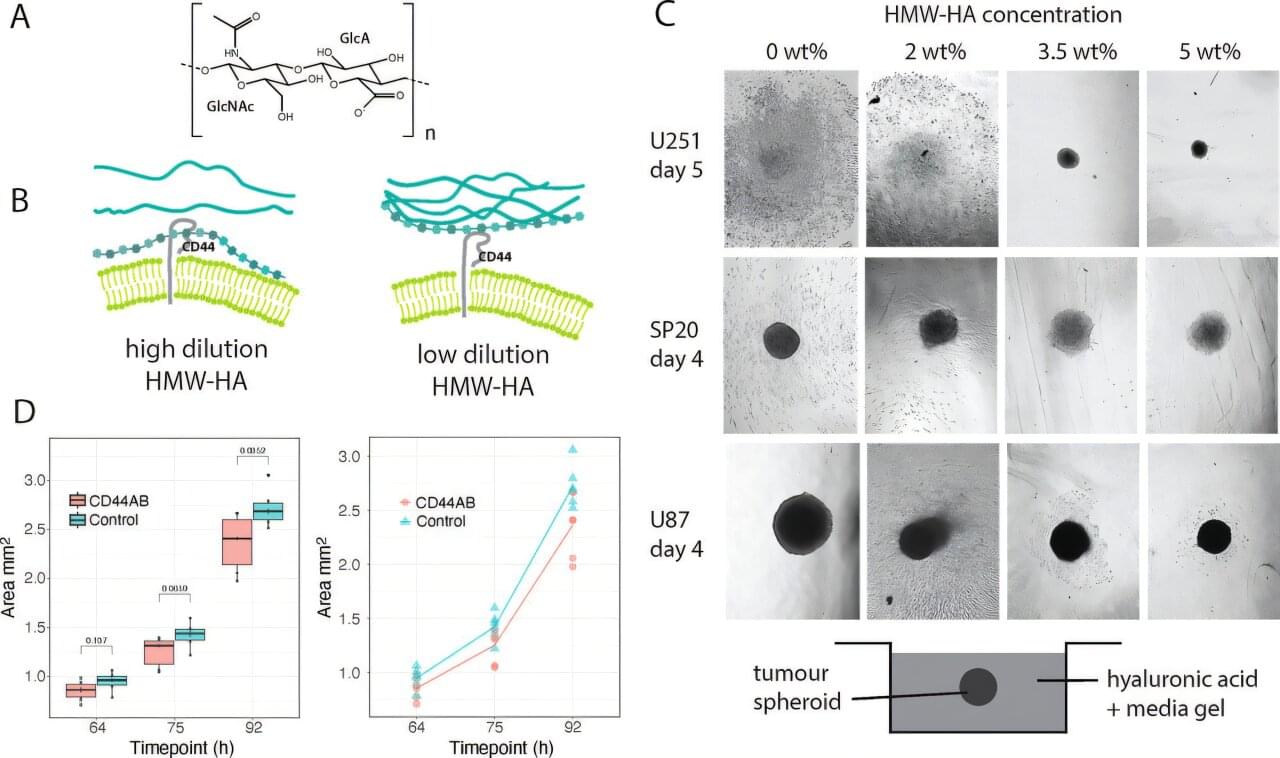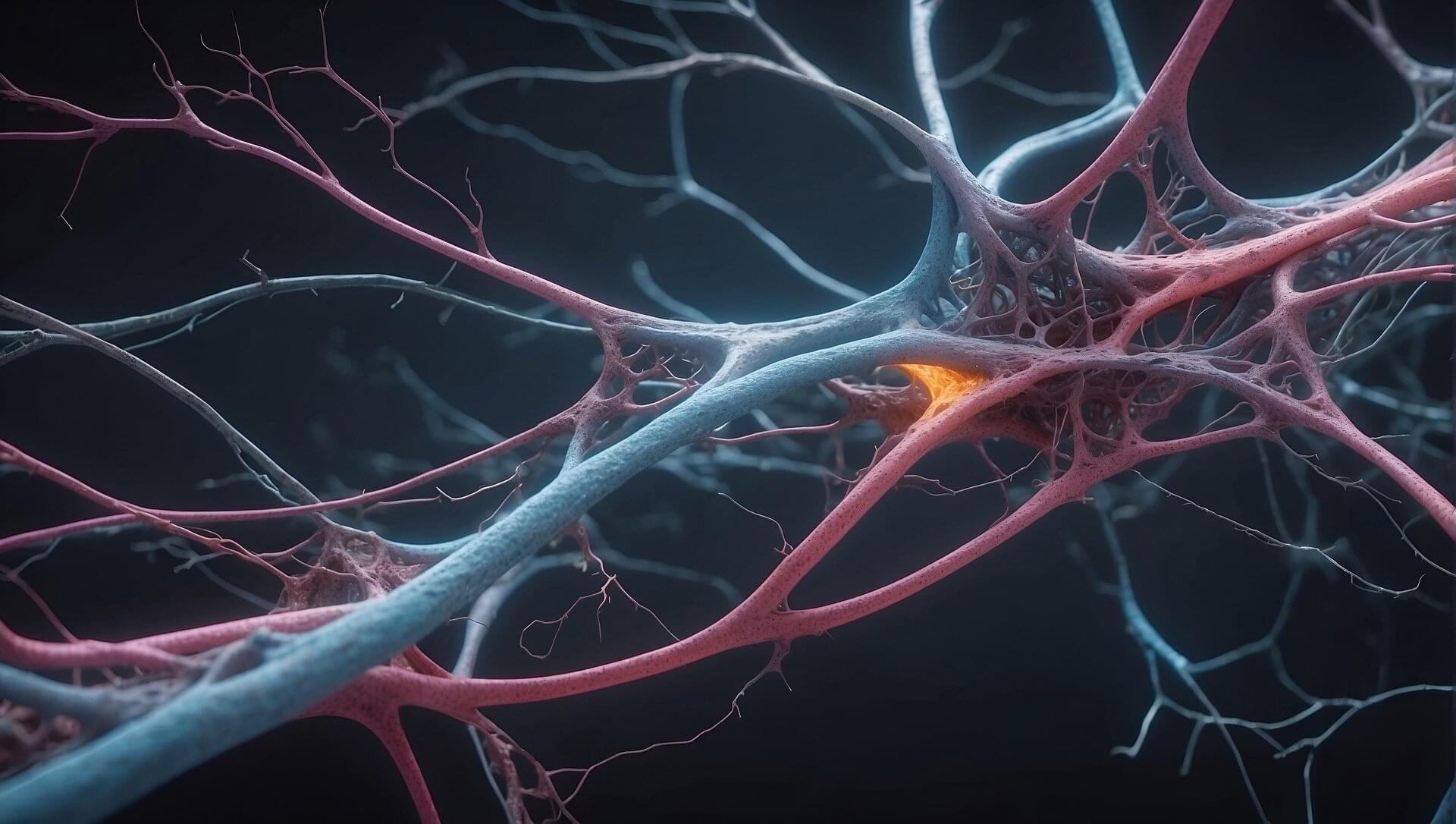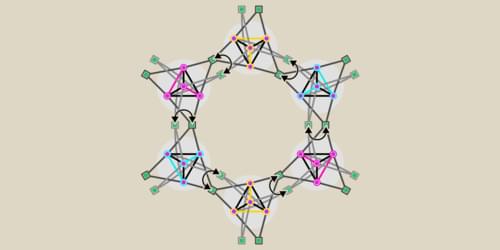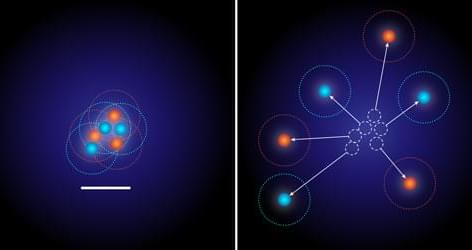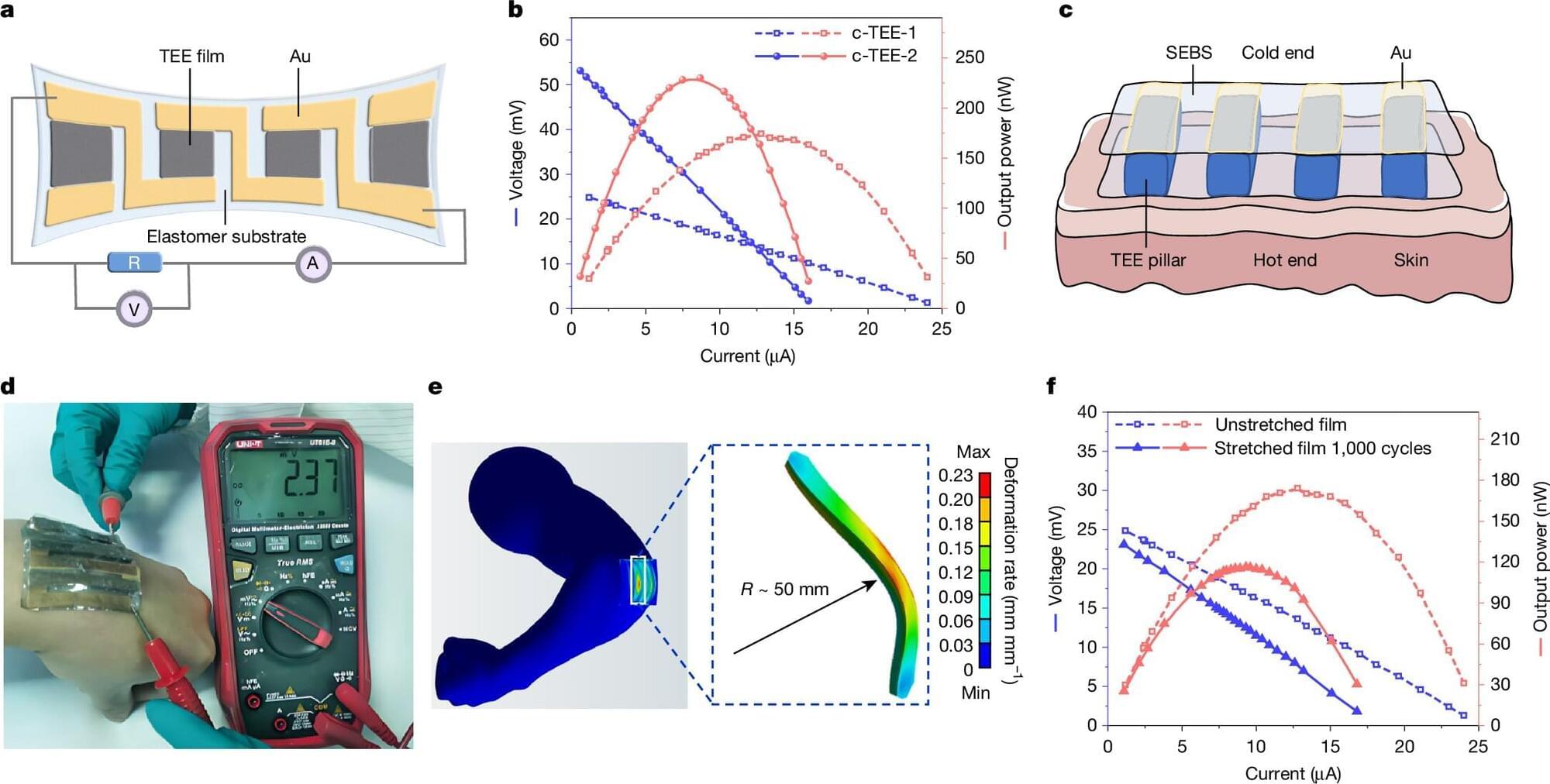Scientists have found a way to stop brain cancer cells spreading by essentially ‘freezing’ a key molecule in the brain.
The finding could pave the way for a new type of treatment for glioblastoma, the most aggressive form of brain cancer, although extensive testing will be required before it can be trialed in patients. Glioblastoma is the most common type of brain cancer, with a five-year survival rate of just 15%.
The researchers, from the University of Cambridge, found that cancer cells rely on the flexibility of hyaluronic acid (HA)—a sugar-like polymer that makes up much of the brain’s supporting structure—to latch onto receptors on the surface of cancer cells to trigger their spread throughout the brain.
